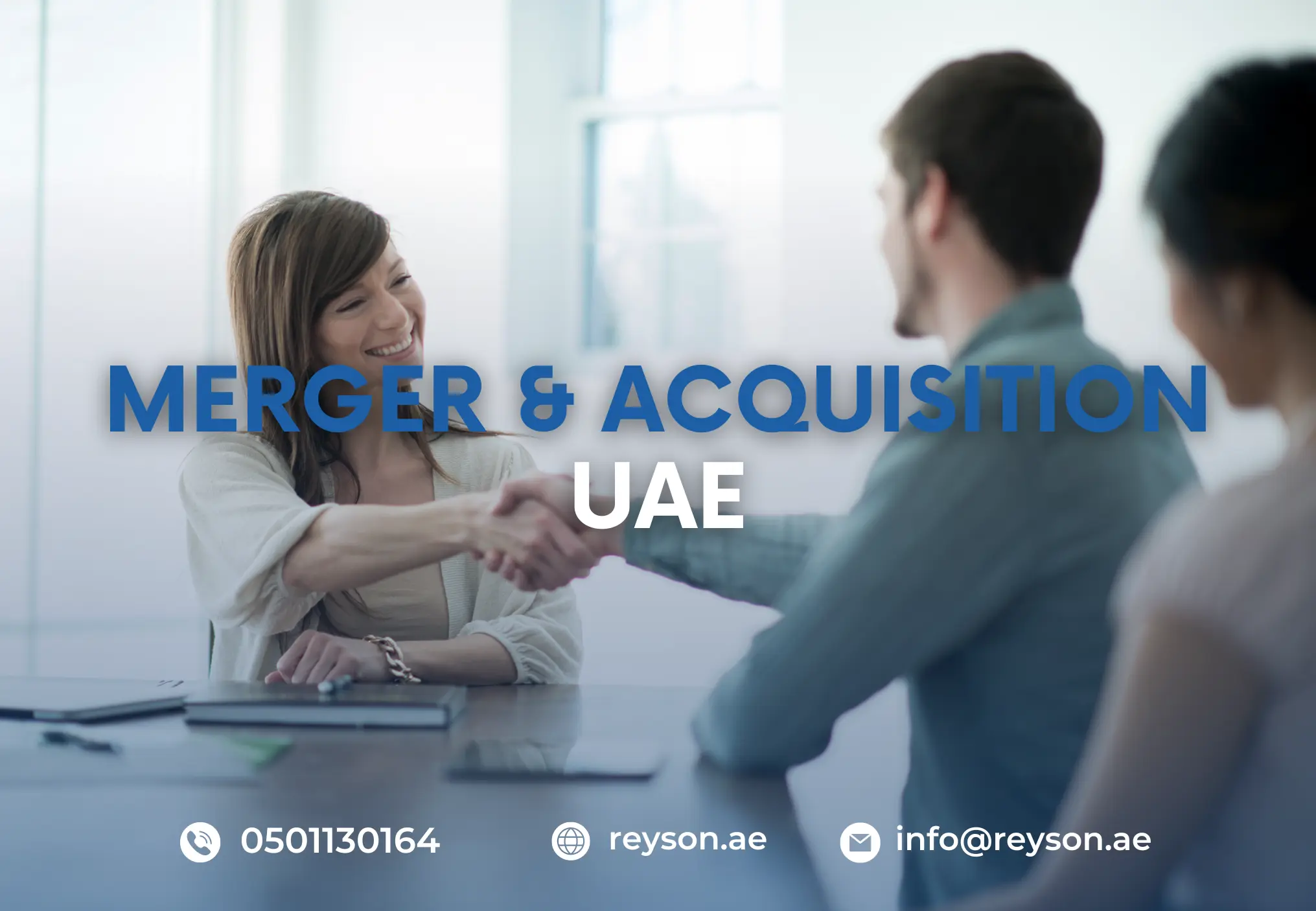

Mergers and Acquisitions (M&A) refer to business transactions in which the ownership of companies, business organizations, or their operating units are transferred or consolidated with another company. A merger occurs when two companies combine to form a new entity, while an acquisition involves one company taking control of another by purchasing its shares or assets. M&A activities are strategic moves that allow businesses to grow, diversify, or enhance their competitive position in the market.
In recent years, Mergers and Acquisitions (M&A) services have become important for companies in Dubai's fast-changing business world. They use M&A to grow their businesses, access new technologies, and become more efficient. This is because Dubai's economy is always evolving, and businesses want to stay competitive and find new opportunities. Mergers and Acquisitions companies in Dubai help to expand into new markets, reach different types of customers, and find new industries. It also lets them get new technologies, special skills, and more resources, which are all important for staying successful and growing. Moreover, Mergers and Acquisitions in Dubai help companies save money and work better. By joining forces, they can cut costs, make their operations smoother, and become more profitable. This not only makes them financially stronger but also helps them succeed in Dubai's business world in the long run.
Mergers and acquisitions play a crucial role in the UAE economy for several reasons:
When thinking about Mergers and Acquisitions Companies in Dubai, there are important things to think about. One big thing is the laws that control these kinds of deals. Dubai uses a system called civil law, which is influenced by Islamic law. This can affect how contracts work and what happens if there's a problem. It's really important to follow these laws and make sure everything is done right.
Taxes are another big consideration. Dubai is known for having no personal or business income taxes for most companies. But there might still be other taxes like VAT that you need to know about. Before making a deal, it's smart to check all the tax rules to see how they might affect the business after the deal is done.
Dubai generally makes it easy for businesses to operate. Some rules help foreign investors, and the government wants to attract more investment. But there are still rules to follow, especially in different industries. Also, there are areas called free zones where businesses get special benefits like no taxes and full foreign ownership. These zones are popular for Mergers and Acquisitions in Dubai, especially in tech and finance. Understanding how free zones work can be really helpful when deciding on buying or merging a business in Dubai.
Mergers and acquisitions (M&A) offer numerous advantages for companies looking to enhance their market position, streamline operations, and achieve growth. Here are some key benefits:
M&A can create synergies where the combined value and performance of two companies exceed the sum of their individual values. This often results in cost savings through economies of scale, allowing the merged entity to operate more efficiently.
Through M&A, companies can achieve lower average costs per unit by spreading fixed expenses over a larger volume of production. This cost efficiency can lead to improved profit margins.
The credibility of a combined entity typically improves, making it easier to secure funding from investors or financial institutions. This financial strength enables further investments in expansion, innovation, and strategic initiatives.
M&A allows companies to quickly enter new markets or expand their existing market share by acquiring established businesses. This is often faster and less costly than starting from scratch, providing an immediate competitive edge.
Mergers and acquisitions enable companies to diversify their product lines or services, spreading risk across different sectors. This diversification can protect against downturns in specific markets or industries.
Acquiring another company often provides access to specialized skills, technologies, and resources that can enhance innovation and operational efficiency. This talent acquisition is particularly valuable in sectors like technology and healthcare.
M&A can expand a company’s geographical reach, increasing its ability to distribute goods or services on a larger scale. This broader distribution network can lead to increased brand recognition and sales.
By merging with or acquiring competitors, companies can reduce competition in the market, leading to greater pricing power and improved market influence.
M&A can unlock opportunities for new product development by combining the strengths of both organizations. This integration can lead to innovative solutions that meet customer needs more effectively.
Through M&A, companies can boost their revenue streams by accessing new customer segments and enhancing their product offerings, ultimately driving higher sales.
When businesses Mergers and Acquisitions in Dubai, they follow specific steps. Here's a detailed look at each stage and how advisors help:
When engaging in mergers and acquisitions (M&A), several critical factors must be considered to ensure the success of the transaction. These factors help mitigate risks and enhance the likelihood of achieving desired outcomes. Here are some key considerations:
Mergers and acquisitions can be categorized into three primary types based on their structure and purpose:
Horizontal Mergers:
Vertical Mergers:
Conglomerate Mergers:
The regulatory framework governing mergers and acquisitions (M&A) in Dubai is structured to ensure transparency, protect competition, and facilitate business transactions. Key authorities and relevant laws play a significant role in this framework.
Dubai Department of Economic Development (DED):
Dubai International Financial Centre (DIFC):
Federal Decree-Law No. 32 of 2021 on Commercial Companies (CCL):
Federal Decree-Law No. 19 of 2018 on Foreign Direct Investment (FDI Law):
Federal Law No. 4 of 2012 on the Regulation of Competition (Competition Law):
The UAE Competition Law plays a pivotal role in regulating mergers and acquisitions by ensuring that such transactions do not lead to anti-competitive practices. Under the law:
Reyson Badger offers excellent mergers and acquisitions services, assisting businesses to reach their objectives efficiently. Our expert staff provides full assistance, from identifying opportunities to finalizing deals, assuring an effortless procedure. With a thorough awareness of the local market and a focus on client satisfaction, Reyson Badger is a top choice for successful mergers and acquisitions advisory services in Dubai.
1. What are the primary benefits of M&A in Dubai?
The primary benefits of M&A in Dubai include market expansion, increased access to capital, diversification of products and services, enhanced competitive positioning, and potential cost savings through synergies.
2. How long does an M&A process take?
The duration of an M&A process can vary significantly based on factors such as the complexity of the deal, regulatory approvals required, and due diligence efforts. Typically, it can take anywhere from a few months to over a year to complete.
3. What industries are most active in M&A in Dubai?
Industries that are most active in M&A activities in Dubai include real estate, technology, healthcare, financial services, and tourism. These sectors often see significant investment and consolidation efforts due to their growth potential and strategic importance.